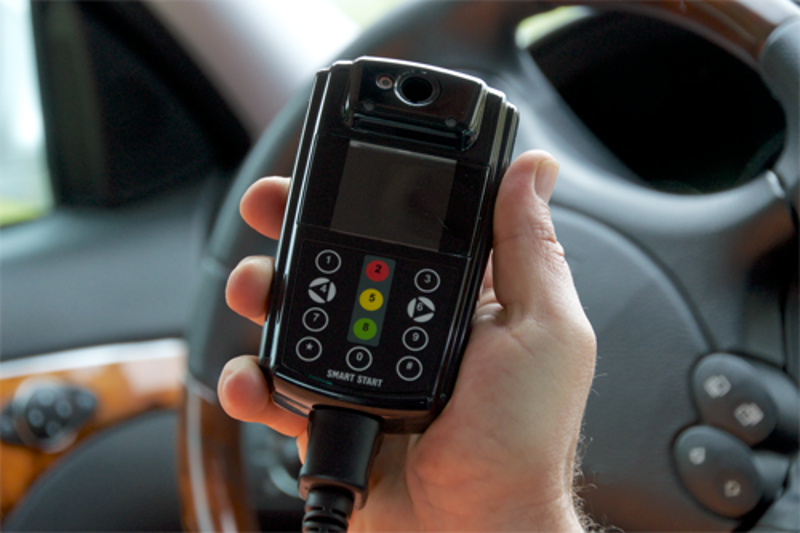Unjust Lifetime Driving Ban Imposed on Minnesota Resident

In a troubling decision issued yesterday, the Minnesota Court of Appeals upheld a lifetime driving ban (even driving with an ignition interlock device) for a Minnesota resident based on a Wisconsin DWI conviction. The case highlights a serious flaw in how Minnesota handles reciprocal driving bans with other states and raises concerns about fairness and road safety policy.
Case Background: A Lifetime Ban Across State Lines
The facts of the case are straightforward but concerning. A Minnesota resident had three prior DWIs in Minnesota, but they occurred more than ten years before his 2022 Wisconsin DWI conviction. Following this conviction, Wisconsin imposed a lifetime driving ban on the driver. Despite the fact that if the DWI had occurred in Minnesota, he would have been eligible to regain his license with the use of an ignition interlock device, Minnesota adopted Wisconsin's lifetime ban, stripping him of his ability to drive without any possibility of reinstatement, even with interlock (a system that has been proven to keep roads safe by allowing offenders to regain driving privileges while ensuring they are sober behind the wheel).
The Court's Ruling: Passing the Buck to the legislature
In its opinion, the Court of Appeals placed the blame squarely on the Minnesota Legislature for failing to address this gap in the law. The Court wrote: "It is equally true that this court cannot supply that which the legislature purposely omits or inadvertently overlooks."
The driver argued the Minnesota Department of Public Safety's decision to adopt Wisconsin's lifetime ban was arbitrary and unreasonable. The ruling exposes a significant policy issue. Minnesota's current reciprocity agreement allows harsher penalties to be imposed on its residents for out-of-state offenses than they would face if the same incident occurred within the state's borders. Had the driver's DWI occurred in Minnesota, he would have been eligible for a license with ignition interlock—a system that has been proven to keep roads safe by allowing offenders to regain driving privileges while ensuring they are sober behind the wheel.
The Problems with the Court's Decision
1. Inconsistent Application of Penalties:
The most glaring issue in this case is the inconsistency in how Minnesota applies driving penalties based on where the offense occurs. Under Minnesota law, drivers with prior DWIs who commit another offense can drive under the ignition interlock program. This allows them to regain driving privileges while ensuring public safety. However, because this offense occurred in Wisconsin, Minnesota is applying a lifetime ban with no chance of redemption without action from Wisconsin. This patchwork system, where Minnesota residents face drastically different consequences depending on where they offend, undermines the law's fairness. In addition, Wisconsin permits unconstitutional warrantless blood searches, unlike Minnesota which follows United States Supreme Court Precedent!
2. Failure to Promote Public Safety:
The ignition interlock program has been an effective tool for reducing repeat DWI offenses and ensuring that only sober drivers are on the road. By imposing a lifetime ban on drivers as here, Minnesota is actually removing a safety mechanism that could prevent future incidents. A blanket lifetime ban does nothing to rehabilitate offenders or promote long-term safety on Minnesota roads. In contrast, ignition interlock ensures drivers remain sober and allows them to continue contributing to society.
3. Legislative Gaps Need Urgent Attention:
The Court of Appeals claimed that the issue lies with the Minnesota Legislature, which "purposely omits or inadvertently overlooks" addressing such situations. This, however, does not absolve the Court from its responsibility to critically analyze the broader consequences of its rulings. The decision to impose a lifetime ban without the possibility of ignition interlock is both punitive and counterproductive, and the legislature must act quickly to correct this oversight. Minnesota has more nuanced policies that allow for ignition interlock even after serious DWI offenses. Minnesota should not be subject to the whims of other states.
The Path Forward: A Call for Reform
Minnesota's DWI laws are designed to strike a balance between punishment and public safety. Ignition interlock systems help maintain that balance by allowing offenders to regain driving privileges while ensuring they are sober. The current situation, where a lifetime ban is imposed based on another state's absurd laws, tips the scales too far toward punishment without regard for rehabilitation or safety.
This decision serves as a clear call to action for Minnesota lawmakers. It is time to revise the state's reciprocal DWI laws to ensure consistency, fairness, and the continued promotion of road safety through ignition interlock programs. A lifetime ban without the possibility of redemption is neither just nor effective. By updating the law, Minnesota can ensure that its residents are treated fairly, regardless of where their offense occurred, while continuing to keep its roads safe.
Conclusion
The Court of Appeals decision exposes serious flaws in Minnesota's approach to out-of-state DWI convictions. While the Court feels its hands are tied by the legislature's failure to address this issue, it is clear that the current law is unfair and counterproductive. Minnesota's ignition interlock program has proven to be a valuable tool for reducing repeat DWI offenses and improving road safety. It is time for the legislature to act and fix this broken system, ensuring that Minnesota residents are not unduly punished for offenses committed in other states.

